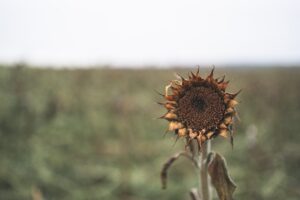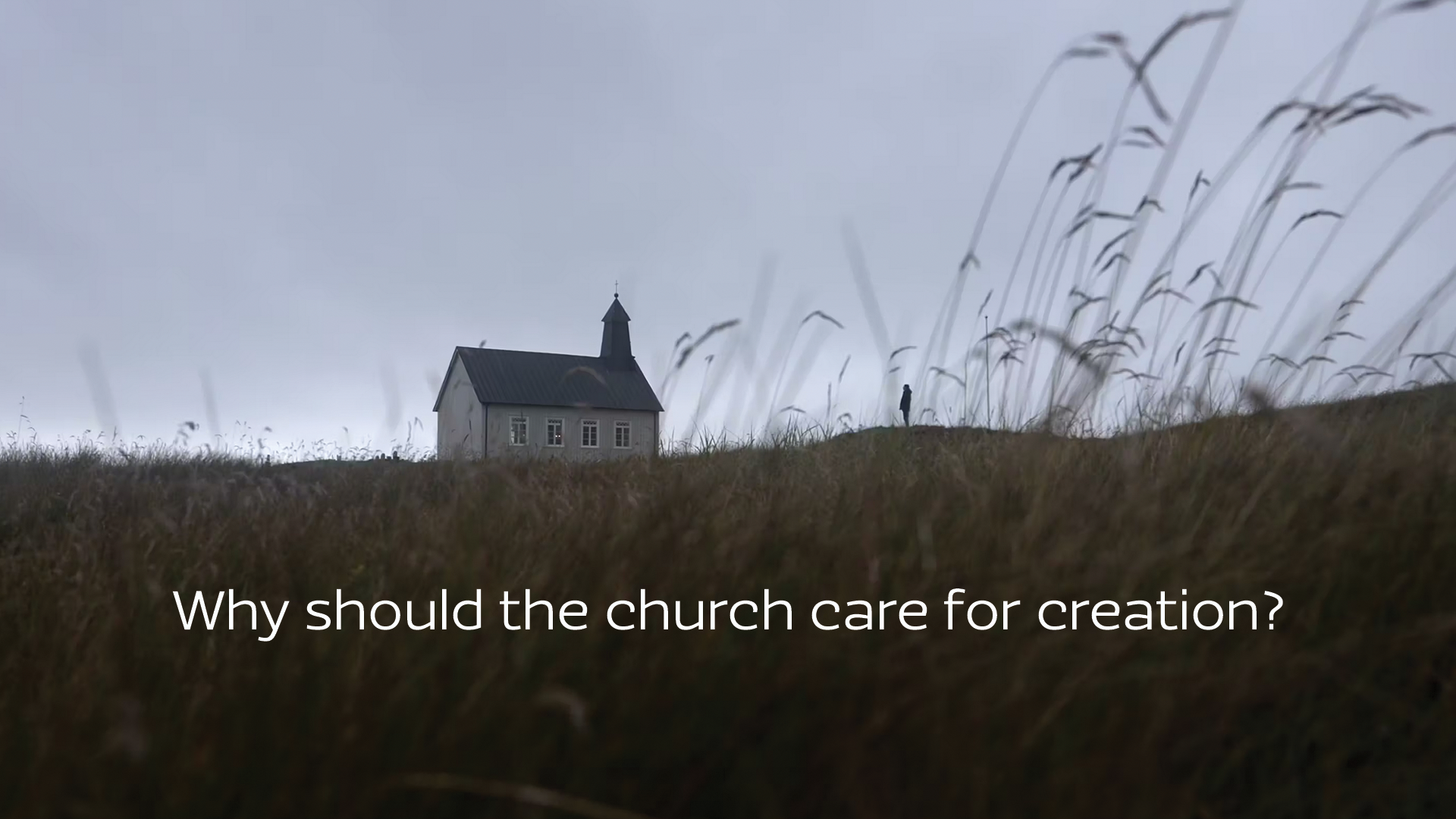Does our pride cause the earth to fall?

A sunflower in autumn – credit: Andre Taissin
What do you think are the top environmental problems? Biodiversity loss? Pollution? Land use changes? It’s likely you could write a long list, but I don’t know how many items would make it to your list before you wrote down ‘pride’, ‘injustice’ and ‘greed’ – all of which appear to feature as environmental problems in the Hebrew Bible.
Within Psalm 104 is an exploration of the purpose of creation. The created world reveals God, reflecting God’s glory and goodness – God who “stretches out the heavens like a tent” and has “set the earth on its foundations” (Psalm 104:2, 5). In turn, creation praises God – “all creatures look to [God]” (Psalm 104:27). But beyond this, there are two additional elements of the teleology of creation in the Hebrew Bible that are less positive. At the end of Psalm 104 the psalmist utters a passionate outcry against evil and wickedness after having extolled the wonders of the earth and God’s creative and sustaining power: “may sinners vanish from the earth and the wicked be no more” (Psalm 104:35). This is not the psalmist lamenting the existence of humanity within the created world, but rather picks up on themes found elsewhere in prophetic texts. First, that the earth itself mourns and laments human sinfulness (e.g. Hosea 4:1-3). Second, that the prophetic critique against injustice invokes the land itself (e.g. Amos 8:4-8).
We are unused to attributing agency to creation or to considering that there is a relationship between God and the created world which exists independently of us, which requires neither our mediation nor our approval. And yet, this is a relationship clearly depicted within the Hebrew Bible. Psalm 104 easily assumes an interplay between God’s providence and the natural action or agency attributed to God’s creatures (verses 14-18). There is no contradiction between divine and natural action in the minds of biblical authors: God provides and enacts the divine purpose; creation acts in response. Just think of the language of Psalm 104:14 “You cause the grass to grow…” and compare with Genesis 1:24 “Let the earth bring forth”. Everything creation is and does is a response to God’s being and God’s action in the world.
Indeed, Psalm 104 mirrors the structure of the days of the creation in Genesis 1, moving from describing cosmic wonders, such as the formation of light and creation of the heavens, through to what we might term terrestrial ecology. The created universe of Genesis 1 functions in the way that God intended it to do, and we are reminded again of in poetic form of God’s creative activity in both Psalm 104 and Job 38-39.
The outcry at the end of the psalm against human wickedness is made within this context. We are part of the created world but while we may act without regard for others, both human and non-human, we cannot act in this way without consequence. Our sinful pride impacts upon the earth, and the earth cries out to God.
It is note-worthy that by far the most prevalent description of human beings in the Hebrew Bible, beginning with Genesis 2, refers to our transience – as grass that withers, flowers that fade, or, as here in Psalm 104, returning to dust upon death (Psalm 104:29). We are encouraged here to remember that we too are made to praise God, and that we too belong to the community of all creation. Rather than a self-centred pride, we are to adopt an other-centred humility which is mindful of our transience and mortality, and of our dependence on God.
Dr Hilary Marlow is a biblical scholar who researches and writes on faith and the environment. She holds several academic roles at Girton College, Cambridge, and teaches Old Testament in the Faculty of Divinity, University of Cambridge. For a full-length article on this topic see: https://www.tandfonline.com/doi/full/10.1080/1756073X.2022.2069541




Thank you for pointing me to a part of Psalm 104 I often skip over! A friend recently shared a project by artist Josh Tiessen exploring the God-given dominion of animals over land in Isaiah. When humans failed to honor the Creator in their use of the land, God allows animals to overtake the wastelands. What a blow to our pride, and a reminder that God looks out for the rights of the lands and its creatures (as in Lev 26.32-35)!
(https://www.joshtiessen.com/sitw-synopsis)